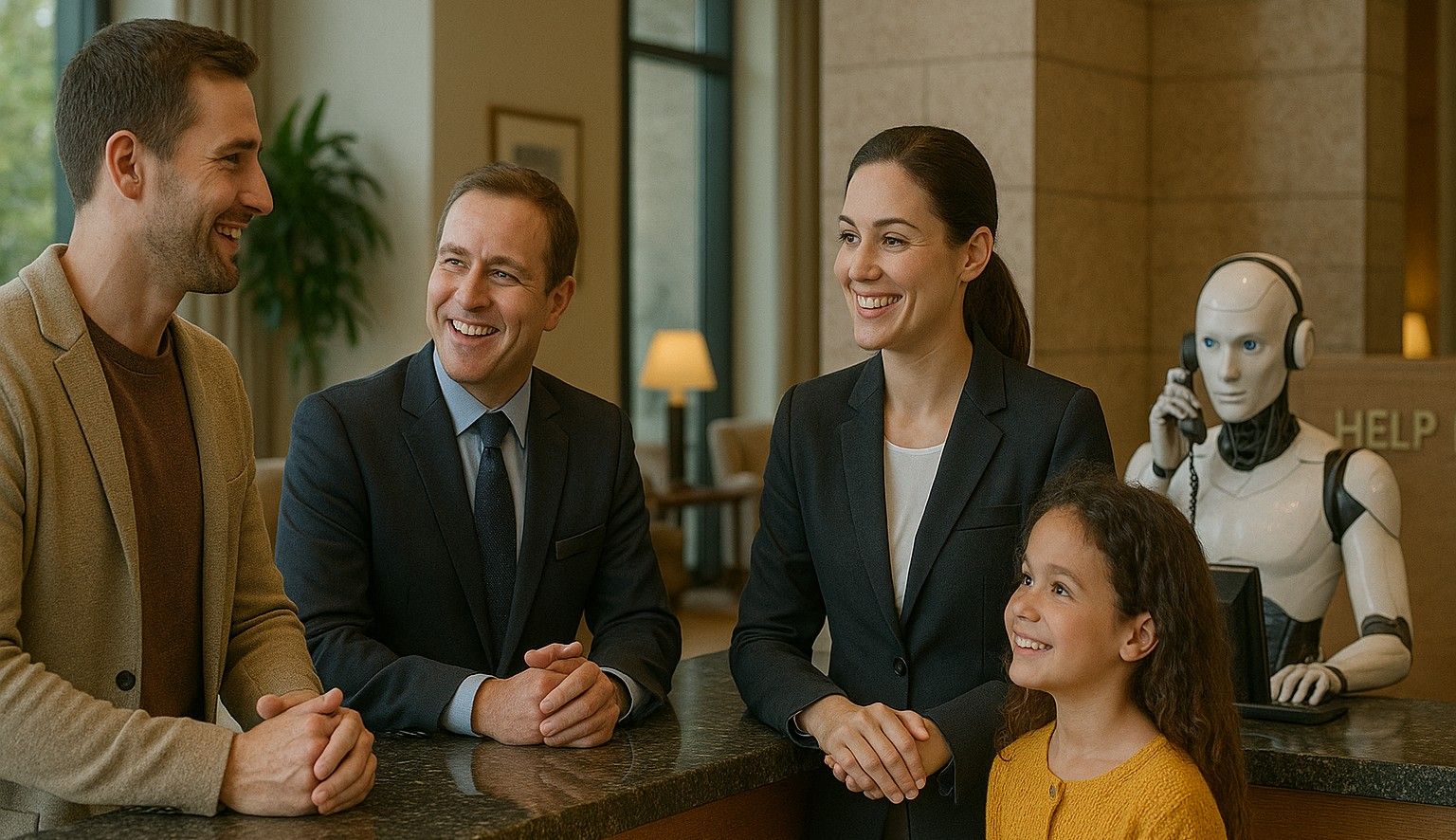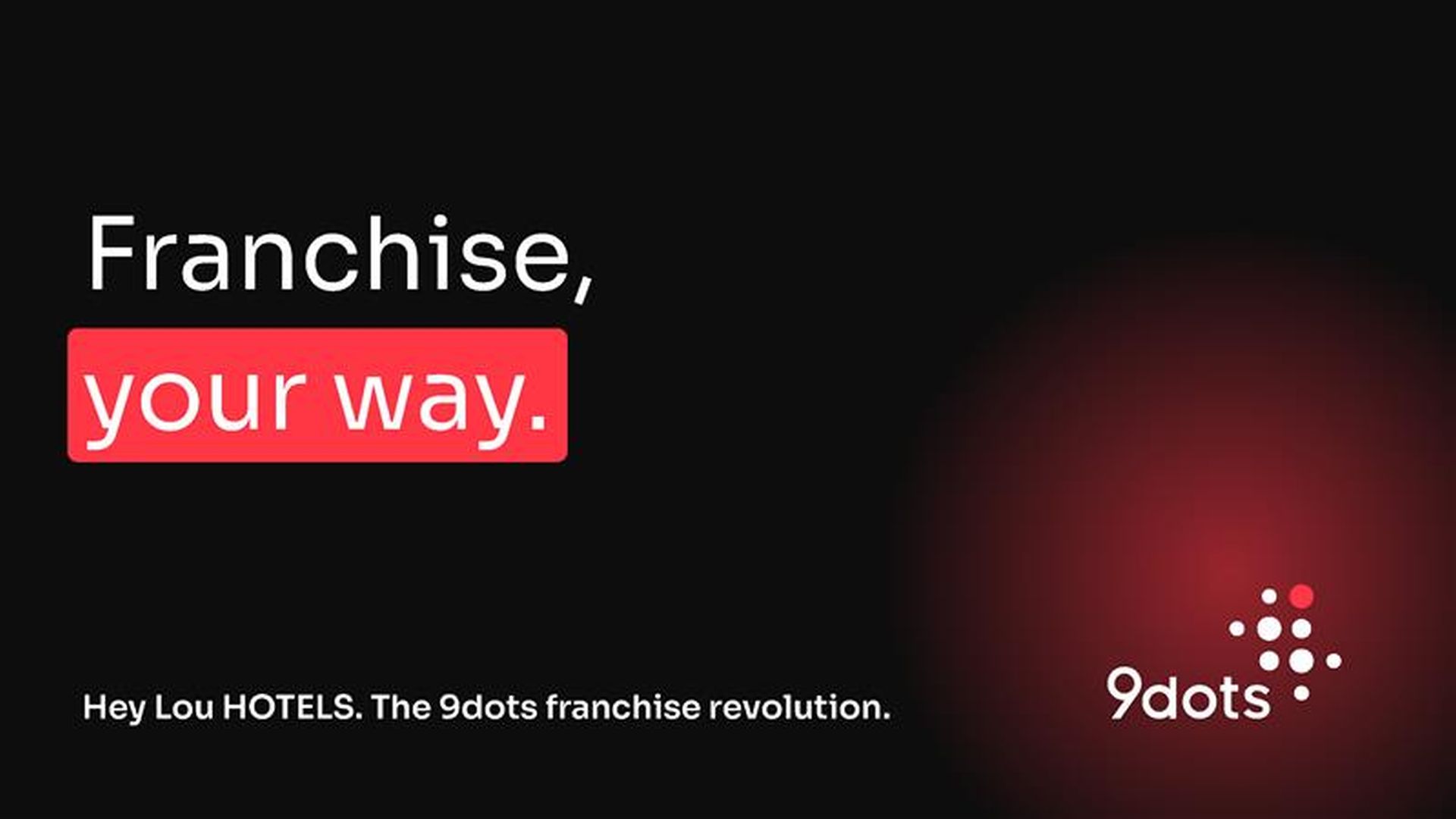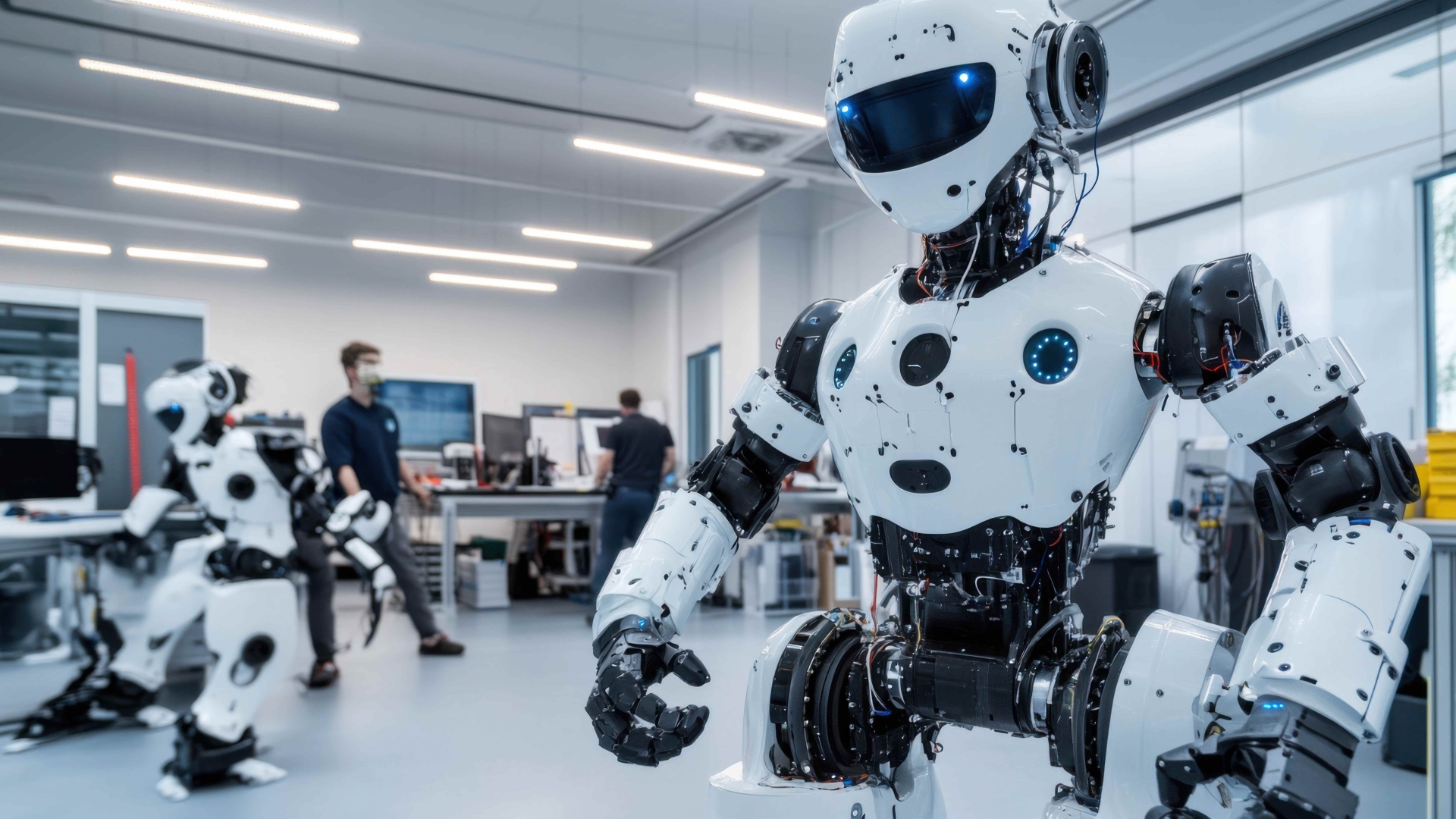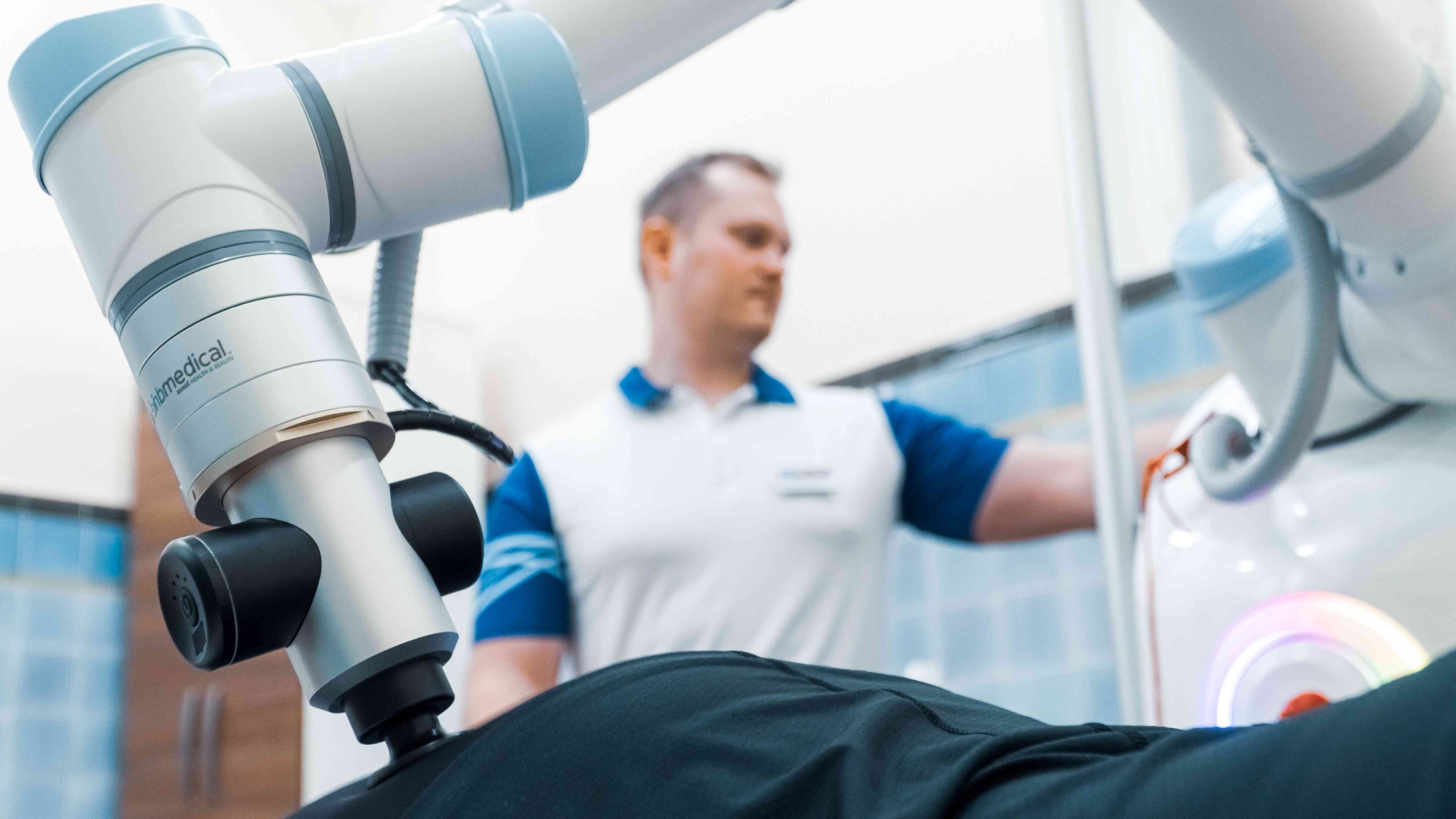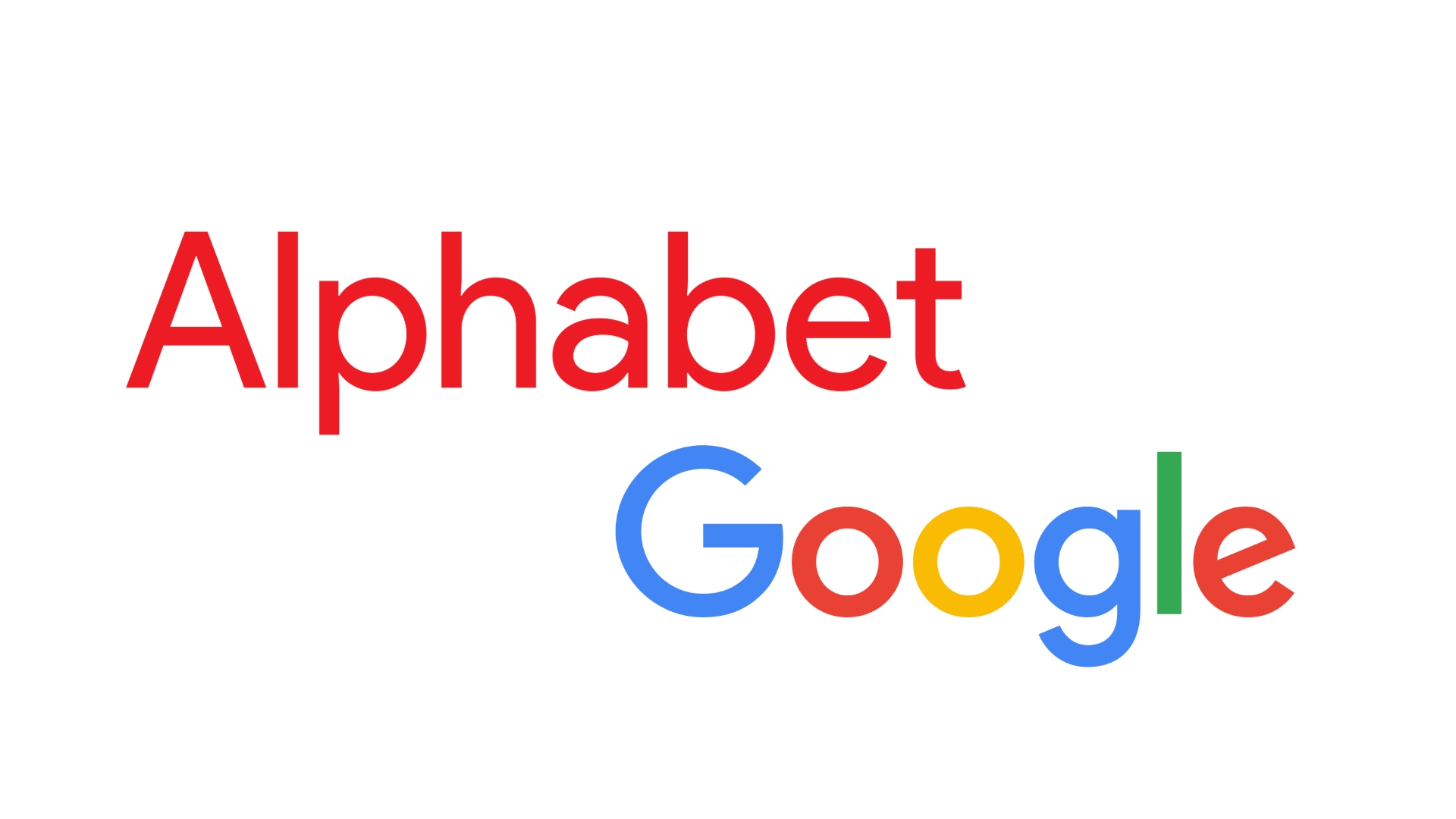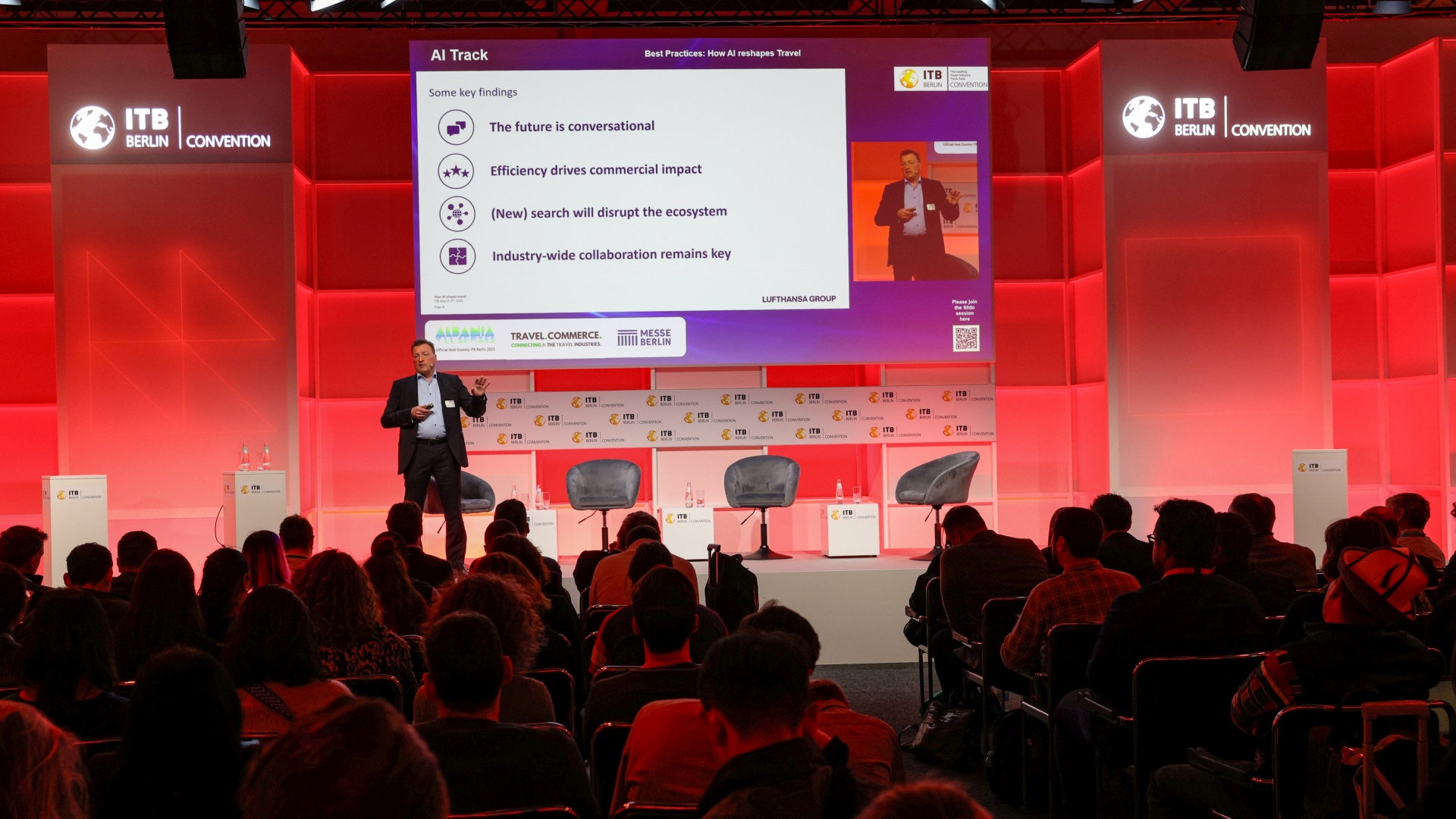
News & Stories
Chatbots are out. Telephone AI voicebots are now fundamentally changing guest communication in hotels: They are already taking bookings and answering questions, working around the clock. Call quality and the precision of the information provided increase every month. User acceptance is also growing rapidly.
The "Hotel as a Service" was launched yesterday: Individual and franchise hotels select the service packages relevant to them from 9 modules on a new tech platform, which in turn draw on more than 100 licensed software solutions and tools. This means that even the less experienced hotelier can manage the entire operation, including in-house administration. "9dots", developed by Martin Kemmer, Place Value, could be a game changer.
The State Development and Reform Commission of China has announced that it will set up a publicly subsidised venture capital fund for robotics, AI and cutting-edge innovations. The focus is on humanoid robots.
Therapy meets AI: The 4-star superior Hotel Centralni Lazne in the Czech spa town of Marienbad has recently started using an AI-controlled massage robot.
Two years have already passed since the introduction of Lex Booking in Switzerland. A review revealed that little has changed since: the pressure from OTAs on accommodation providers remains.
The industry has long searched for a way to regain control over its data, customers, and market intelligence. The launch of the Swiss HCommunity Foundation might present a turning point: Hoteliers retain control over their data. HCommunity ensures that 30% of the revenue generated from this data is returned to contributing hotels.
The EU Commission accuses the Google Group Alphabet of deliberately penalising app developers and is determined to put a stop to such practices.
The Italian tourism industry is under attack by criminal organizations, and important events such as the Jubilee this year in Rome, as well as the Milano – Cortina Winter Olympics Games 2026 makes such a threat even more dangerous. Companies at risk are mainly hotels, travel operators and restaurants plagued by cash crunch and debts.
The ITB has clearly demonstrated: AI is now omnipresent. The development of digital solutions for the hotel industry is progressing rapidly, driven in part by tech providers with fresh capital. A summary.
A visit to a restaurant remains an analogue experience. But most diners are happy for it to be digital all-round. This trend emerges from a representative survey on digital services in the catering industry.
